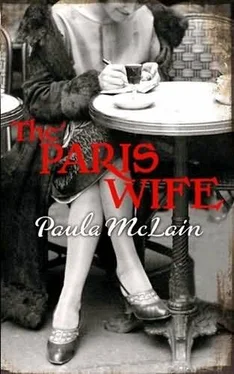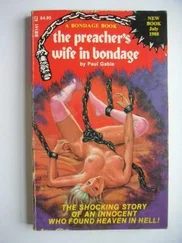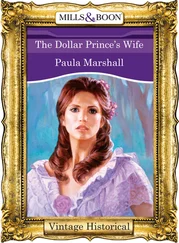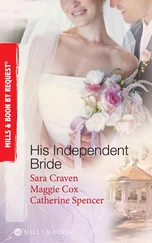I spent another full week in Chicago and every day of that time brought some new excitement. We went to a football game, saw a matinee showing of Madama Butterfly , roamed the city by day and by night. Whenever I saw Ernest, which was often, I strove to keep my head clear and just enjoy his company without conjuring up any drama in one direction or another. I might have been a little more reserved with him than I’d been before, but he didn’t say anything and didn’t force any intimacy until my last evening in town.
It was freezing that night-too cold to be out, really-but a group of us grabbed armfuls of wool blankets, poured rum into flasks, and then piled into Kenley’s Ford and headed out to Lake Michigan. The dunes were steep and pale in moonlight, and we invented a game around them, climbing to the top of one-drunkenly, of course-and then rolling down like logs. Kate went first because she loved to be the first at anything, and then Kenley went, singing his way down. When my turn came, I crawled up the dune as sand shifted under my feet and hands. At the top, I looked around and everything was bright frosted stars and distances.
“C’mon, then, coward!” Ernest yelled up at me.
I closed my eyes and let myself fall, barreling down over the hard bumps. I’d had so much to drink I couldn’t feel a thing-nothing but a thrilling sense of wildness and freedom. It was a kind of euphoria, really, and fear was a key part of it. For the first time since I was a girl, I felt the heady rush of being afraid and liked the sensation. At the bottom, I’d barely come to a stop when Ernest whirled me up out of the dark and kissed me hard. I felt his tongue for a hot instant against my lips.
“Oh,” was all I could say. I couldn’t think about whether anyone had seen us. I couldn’t think at all. His face was inches from mine, more charged and convincing and altogether awake than anything I’d ever seen.
“Oh,” I said again, and he let me go.
The next day I packed my bags for my return trip to St. Louis feeling a bit lost. I’d been so swept away by living for two weeks, I couldn’t really imagine going back home. I didn’t want to.
Kate was working that day and we’d already said our good-byes. Kenley had to be at work as well, but had been kind enough to offer to drive me to the station on his lunch break and save me the cab fare. After everything was stowed and ready, I put on my coat and hat and went to wait for him in the living room. But when a body appeared in the hall to fetch me, it was Ernest’s.
“Kenley couldn’t get away after all?” I asked.
“No. I wanted to do it.”
I nodded dumbly and collected my things.
It wasn’t much of a distance to Union Station and we passed it mostly in silence. He wore wool trousers and a gray wool jacket, with a dark cap pulled down nearly to his eyebrows. His cheeks were pink with cold and he looked very beautiful. Beautiful was exactly the right word for him, too. His looks weren’t feminine but they were perfect and unmarred and sort of heroic, as if he’d stepped out of a Greek poem about love and battle.
“You can let me out here,” I said as we neared the station.
“Would it kill you to give a guy a break?” he said, finding a place to park.
“No. Probably not.”
A few minutes later, we stood together on the platform. I clutched my ticket and my pocketbook. He held my suitcase, shifting it from hand to gloved hand-but as soon as my train appeared, its silver-brown body trailing smoke and soot, he set it down at his feet. Suddenly he was holding me tight against his chest.
My heart beat fast. I wondered if he could feel it. “I don’t think I’ve ever met anyone like you,” I said.
He didn’t say anything at all, just kissed me, and through that kiss I could feel all of him radiating warmth and life. There was so much I didn’t know about Ernest and even more I wouldn’t let myself ask or even imagine, but I found myself surrendering anyway, second by second. We were surrounded by people on the platform, but also entirely alone. And when I finally boarded my train a few minutes later, my legs were shaking.
I found a seat and looked out my window into the crowd, scanning the dark suits and hats and coats. And then there he was, pushing closer to the train, smiling at me like a maniac and waving. I waved back, and then he held up one hand like a sheet of notebook paper, and the other like a pencil, pantomiming.
I’ll write to you , he mouthed. Or maybe it was I’ll write you.
I closed my eyes against hot, sudden tears, and then leaned into the plush seat as my train carried me home.
In 1904, the year I turned thirteen, St. Louis was host to the Louisiana Purchase Exposition, better known as the World’s Fair. The fair grounds covered twelve hundred acres in and around Forest Park and Washington University, with seventy-five miles of paths and roads connecting the buildings and barns and theaters. Many of these structures were plaster of Paris over wooden framing, built to last only a few months, but they looked like opulent neoclassical palaces. Our crown jewel, the Palace of Fine Arts, boasted a sculpture garden fashioned after the Roman Baths of Caracalla. There were lagoons you could paddle along, enormous man-made waterfalls and sunken gardens, exotic animal zoos and human zoos with pygmies and primitives, bearded girls and pinheaded boys. All along the Pike, hundreds of amusements and games and food stalls enthralled the passersby. I had my very first ice-cream cone there and couldn’t stop marveling at how the sugary cylinder wasn’t cold in my hand. The strawberry ice cream inside it seemed different, too. Better. It might have been the best thing I’d ever tasted.
Fonnie was with me on the Pike that day, but she didn’t want ice cream. She didn’t want cotton candy or puffed wheat or iced tea or any of the other novel offerings either, she wanted to go home where our mother was preparing to host her weekly suffragette meeting.
I’d never understood why Fonnie was drawn to Mother’s group. The women always seemed so unhappy to me. To hear them talk, you would think that marriage was the most terrible thing that could happen to a woman. My mother was always the loudest and most emphatic one in the room, nodding sharply while Fonnie passed plates of teacakes and watercress sandwiches, trying very hard to please everyone.
“Another half hour,” I said, trying to bargain with Fonnie. “Don’t you want to see the Palace of Electricity?”
“Stay if you like. I’m surprised you can enjoy yourself.” And then she flounced imperiously off into the crowd.
I was enjoying myself or had been until she reminded me I was supposed to be sad. It was probably very selfish of me to want to stay and smell the salt on the popcorn, and hear the braying from the barns. But it was April and the cherry trees around the lagoons were flowering. I could close my eyes and hear fountains. I could open them and imagine I was in Rome or Versailles. Fonnie grew smaller in the crowd, her dark skirt blotted by riotous color. I wanted to let her go without caring what she thought of me or said to our mother, but I couldn’t. I took a last dejected look at my ice-cream cone and then dropped it into a trash barrel as I trotted off after my sister toward home, where the curtains were drawn and the lights were banked, and had been for some time. We were in mourning. My father had been dead two months.
Ours was the quintessentially good family, with Pilgrim lineage on both sides and lots of Victorian manners keeping everything safe and reliable. My father’s father founded the St. Louis Public Library and the Richardson Drug Company, which became the largest pharmaceutical house west of the Mississippi. My mother’s father was a teacher who started the Hillsboro Academy in Illinois and later a private high school in St. Louis called the City University. Fonnie and I went to the best schools wearing navy-blue skirts with knife-sharp pleats. We sat for private lessons at one of our two Steinway grand pianos, and spent summers in Ipswich, Massachusetts, at our beach cottage. And everything was very good and fine until it wasn’t.
Читать дальше












